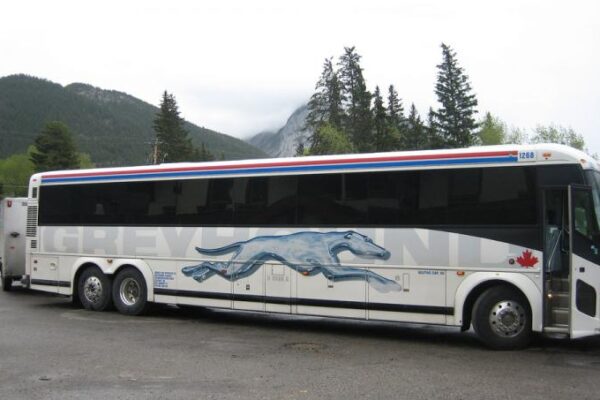Greyhound buses, once a symbol of travel on America’s vast highways, have become rolling traps where U.S. Customs and Border Protection agents routinely board to unlawfully interrogate, detain and arrest passengers.
The agents, with the agreement of Greyhound, stage surprise boardings without warrants to question riders about their citizenship and travel plans. In many cases, all too reminiscent of police states, the agents demand to see a passenger’s “documents.”
The warrantless raids, which saw a rapid increase in the past year, are not only a blatant disregard of passengers’ constitutional rights, they are also clearly driven by racial profiling. On Wednesday, March 21, ACLU affiliates in California, Texas, Washington, Vermont, New York, New Hampshire, Michigan, Florida, Arizona, and Maine sent a letter to Greyhound Lines Inc. to urge the company to change its policies and refuse CBP permission to conduct raids on buses without warrants.
“Greyhound should be in the business of transporting passengers, but instead is allowing intimidating interrogations and searches,” said attorney Monica C. Andrade, ACLU of Michigan Skadden Legal Fellow. “These searches violate the rights of passengers, who simply want to arrive to their destinations safely. They should not be subject to warrantless arrests and the threat of deportation.”
Read the ACLU letter to Greyhound.
An incident reported to the ACLU of Michigan occurred in January 2018 when a couple arriving in Detroit by Greyhound was detained by CBP. The agents, without giving any reason for the stop, questioned the couple about their immigration status and asked them to produce their “documents.” The man was arrested by CBP, transferred to the local police department, and is currently being held in immigration detention while his U.S. citizen fiancé is struggling to bring her partner back home.
In a separate incident, a Greyhound bus leaving Michigan for New York was stopped. CBP agents boarded the bus and asked every passenger for their citizenship and immigration status and identification. Passengers who did not provide proof of lawful status were then taken into custody.
The common thread in the reports received by the ACLU of Michigan is that CBP agents operating on Greyhound buses focus on persons of color and never give passengers a reason for the stop. Indeed, CBP data obtained by the ACLU shows not only that 82% of foreign citizens stopped by CBP in Michigan are Latino, but also that almost one in three of those processed are U.S. citizens. This data strongly suggests that CBP is using ethnicity as the basis for its stops.
Examples of unlawful interrogations and searches have come from across the country.
- In California, CBP stopped a Los Angeles resident in Indio without any stated reason as he boarded a bus except that his “shoes looked suspicious,” like someone who had recently crossed the border. The man was detained to the point that he missed his bus. — In another instance, a CBP agent demanded that a Latino U.S. citizen who was filming a raid show two forms of identification.
- In Vermont, a bus arriving at 2a.m. in the Hartford area was boarded by agents. “They wouldn’t let us get off,” a witness told the Valley News newspaper, adding that the agents “only checked the IDs of people who had accents or were not white.”
- In Washington, a father and son were arrested, even though the son had DACA status and the father gave no information about his immigration status. The agent interrogating them without a warrant asked, “Are you illegal” and “Do you have your documents on you.”
Greyhound issued a statement earlier this year saying the company was “required” to cooperate with “enforcement agencies if they ask to board our buses.” But that’s not true. In fact, in accordance with court decisions stemming from the Fourth Amendment of the Constitution, the company may deny CBP permission interrogate passengers aboard a bus without warrants or probable cause.
CBP agents and Greyhound have said agents do not need warrants if they are within 100 miles of the international borders with Mexico or Canada. But geography does not negate the Fourth Amendment. In Michigan, CBP takes the position that the entire state is within 100 miles of the border.
Learn more about Michigan and the 100-mile border zone.
The ACLU, in its “Know Your Rights” handouts, informs passengers that they have the right to remain silent and refuse searches when confronted by government agents who do not have warrants. They also have the right to record video of the incidents, even though there are reports of agents threatening people taking video of the unlawful raids.


